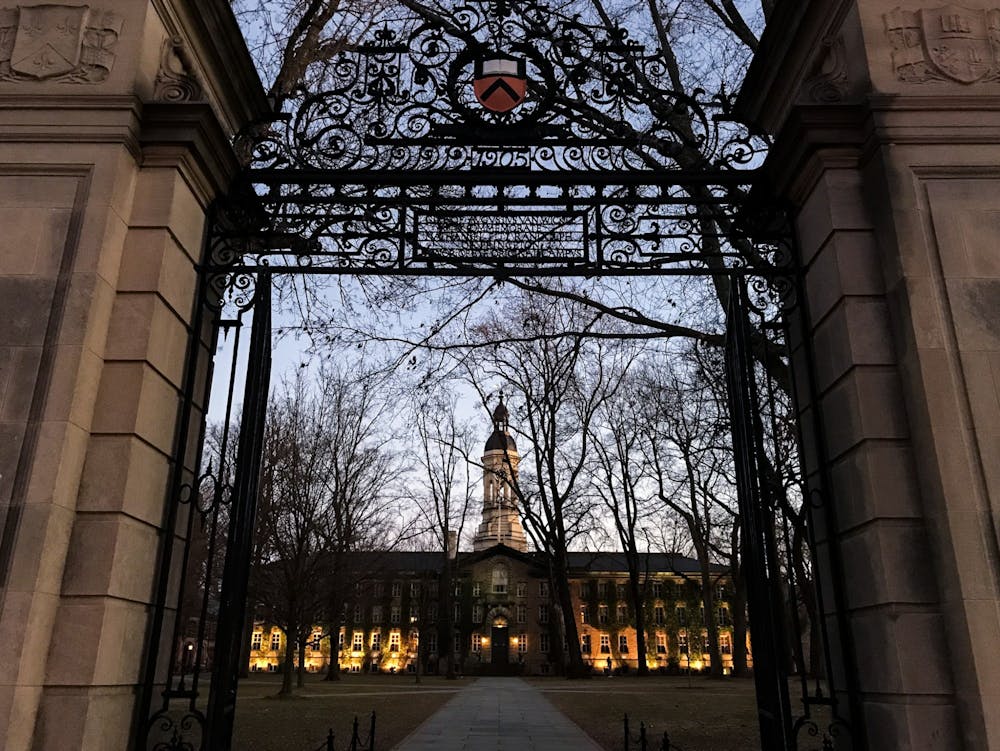The following is a guest contribution and reflects the author’s views alone. For information on how to submit to the Opinion Section, click here.
Princeton’s admissions cycle for the Class of 2025 was touted by the University as an “extraordinary year” in admissions, with a “record-low acceptance rate of 3.98 percent.” Such a number was gratifying for the accepted and seemingly impossible to outsiders; however, the 3.98 percent rarely look back on how exactly we were able to slip into such an outrageously small window. More than a year after my acceptance, I look back and think, “Was everything I did to get in worth the cost?” And my answer is: No, not really. I love and belong at Princeton — but no one should have to subsume their passions to get into a place like this.
As a current sophomore, I’ve been thinking about how I ended up at Princeton in the first place. Like many other Ivy-hopefuls, I participated in the rat race of college admissions in order to push my way into this exclusive world. That period of our lives is not something that we linger on very much: after all, those were unpleasant and stressful times for many of us, and now that we’re here, does it really matter?
I discovered that for me, at least, that time affected me more than I had thought.
My biggest passion is creative writing — it was the part of my identity I emphasized most when applying to colleges because it was what I wanted to study. I had the awards and experiences to back me up on these claims. I even wrote my personal statement about my love of writing.
But the thing about having to package and commodify an artistic passion to apply to college is that the line between authenticity and self-branding becomes easily, and irreversibly, blurred. In my later high school years, I single-mindedly chased after what I perceived as prestige. I never dared try anything new artistically even though I wanted to, because it wouldn't immediately get me anywhere in terms of college applications or award validation. For an overachieving high schooler who wanted what the upper echelon of colleges promised, nothing seemed to be a valid hobby or interest unless you somehow turned it into a nonprofit, a start-up, or an international award.
That experience ruined some aspects of writing for me. Sometimes it’s still hard for me to shake the feeling that writing solely for myself equals “wasted time,” which is ridiculous. How could I be wasting time while doing the thing I love most? Why do I sometimes still feel like I’m working against myself, against a ticking timer, when there are no deadlines or prospects in the near future, or at all?
I thought that playing the “admissions game” was smart and necessary for me in order to get to where I wanted. And after I graduated from high school, I still thought it had been smart and necessary, and that I could just “go back to normal” with writing — like it was a phase I could simply shed and outgrow. For my whole first year of college, I didn’t notice anything amiss. I thought I was still myself. But I failed to see how I damaged my love of my craft by treating it like a tool to get ahead instead of something true to me. It’s taken me an entire year to see that, reflect, and write this.

I see now that I’ve found it hard to “go back to normal.” That I had irrevocably changed some part of myself. If I could go back in time, I would take myself and my passions more seriously. I thought they were the most serious parts of my life, but ironically, I treated them without care or knowledge. I would think long and hard about the spaces I chose to share and partake in, forging a balance between the necessary pursuit of achievement and retaining my identity.
I’m sure that many students might not relate, having never succumbed to the rat race at all, or who ended up feeling the opposite way: liberated to explore once in college. But, I know I’m not alone. And it’s sad that there are many young students in high school out there right now who feel the same way and are possibly, without knowing, losing the ability to see the magic in their passions.
I think it’s okay to admit if the rat race hurt you in some way if it’s not completely behind you, however subtle or large the effects may be. We’re here now, with Princeton’s prestigious name, billions in endowment funds, and renowned community, but many of us paid a price to get here. And, it’s okay to acknowledge that and think about how to work to move forward from it and adapt to that loss. Princeton can be a rat race, too — one with even arguably higher stakes. The constant pressures of productivity are serious, and we’re all struggling within our individual fields and ambitions. But, it may be possible to simultaneously reap benefits from spaces that rely on these prestige-chasing notions without actually buying into them or adopting the same mindset. And it may start with us individually recognizing and sharing how we really feel.
Yejin Suh is a sophomore from Glen Rock, N.J. and a prospective English major. She can be reached at ys4601@princeton.edu.









